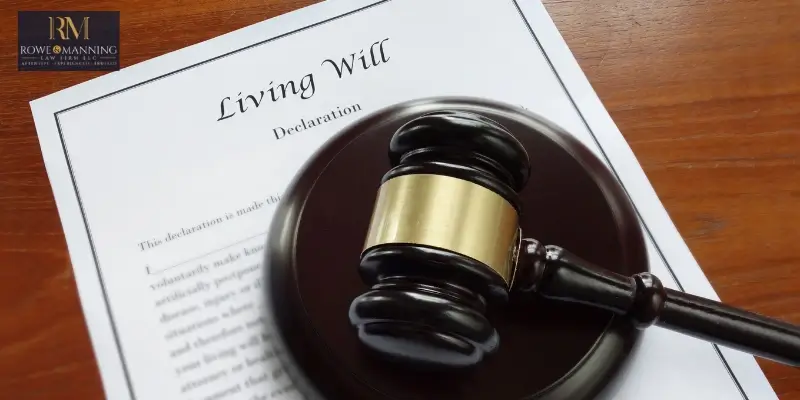What’s the Difference Between a Will and a Living Will in Louisiana? (2025)

There are many estate planning documents, and it can be confusing if you are unaware of the purposes of each document. Many people who are new to estate planning wonder, “What’s the difference between a will and a living will in Louisiana?” A will and a living will are unique documents with their own purposes in estate planning. While a will affects your estate after your death, a living will addresses your medical care during your life.
What Is the Purpose of a Will?
A will, or a last will and testament, is a legal document that covers the assets and debts in your estate, how to handle them after your death, and the beneficiaries of your estate. When you create a will, you are the testator of the will.
There are numerous specifics that a will can cover, including choosing the beneficiaries for your estate and stating which assets each beneficiary receives, stating who you wish to be the executor of your estate, listing your assets and debts and which assets to use to settle your debts, and naming the preferred guardian for any minor children you have.
A last will and testament gives you significant control over your estate and the care of your loved ones after your death. Your will only comes into effect when you die. As long as the will is validated by the succession court, then the specifics within it are followed.

What Is the Purpose of a Living Will?
A living will is a legal document that outlines your preferences for medical treatment and end-of-life healthcare. In advance, you are able to state what types of medical care you do and don’t consent to. If you are incapacitated or otherwise unable to express your wishes, a living will is used to determine those wishes.
Incapacitation is not something people want to think about, but it is an unfortunate possibility. It may occur due to an illness, a serious accident or injury, or due to aging. If you cannot communicate your medical care wishes, your living will can list specifics, such as your preferences for life support, what medical interventions you allow, and other preferences.
A living will can be used in combination with a healthcare power of attorney, placing someone in charge of making your medical decisions based on the information you provide in a living will. Healthcare providers must respect the wishes you state in a legally enforceable living will, ensuring that you have control over your own care. For help creating a full plan that fits your needs, a Baton Rouge estate planning lawyer can guide you through important documents like wills, living wills, and more.
What if You Don’t Have a Will?
In 2025, only 24% of Americans had a will. If you die without a will, it changes the succession process. Instead of you choosing who inherits your estate and who administers it, the succession court selects an executor, and state laws govern the distribution of your estate. This is also the case if you wrote a will, but it was invalidated by the succession court.
The court may place a person in charge of administering your estate that you wouldn’t pick. State laws may give your estate to someone you don’t want to benefit from your assets or fail to care for someone you want to benefit. State laws can also change, and you cannot be sure that the current laws will always hold. Without a will, you also cannot state your preferred care of your minor children.
What if You Don’t Have a Living Will?
As well as only 24% of Americans having a will, 13% stated they had a living trust, and 4% stated they had a different estate planning document, which could include living wills. These categories may also overlap. Conversely, 55% of Americans in 2025 said they had no estate planning checklist.
If you don’t have a living will, your loved ones or legal representative will have to make decisions for you after court approval, and these choices may not align with yours. You have no control over your own medical care.

FAQs About Baton Rouge, LA Will and Living Will Law
What Is Better, a Will or a Living Will?
A will and a living will accomplish different purposes, so both can be useful depending on your needs. A will is effective for designating the division of your estate after death, while a living will is useful for listing your wishes and restrictions for your own medical care and treatment if you are unable to communicate those preferences. A simple estate plan may only include a will, while a more comprehensive plan may have both a will and a living will.
Does a Living Will Have to Be Notarized in Louisiana?
No, a living will does not have to be notarized in Louisiana. However, it does have to be witnessed. You want to ensure your living will is going to be enforced in the event you are incapacitated, or else there is no reason to make one. When you work with an experienced estate planning attorney, they can help ensure you meet the legal requirements of a living will and that your wishes are clearly stated and enforceable.
What Is the Main Advantage of a Living Will?
The main advantage of a living will is providing peace of mind about how you will be cared for if you are incapacitated or otherwise unable to express your wishes for medical care. A living will provides instructions for medical providers and those in charge of your medical decisions. These instructions may include pain management, where you would like to receive medical treatment, and specific treatments you do and do not consent to.
What Are the Requirements for a Will to Be Valid in Louisiana?
For a last will and testament to be valid in Louisiana, the type of will matters. A holographic will must be in the creator’s handwriting, and be signed and dated. A notarial will must be signed, dated, witnessed, and signed by two witnesses and a notary. In order to ensure your will is legally valid and clear enough to be enforceable, it is helpful to work with an attorney.
Protecting Your Personal Interests, Your Loved Ones, and Your Estate
In a comprehensive estate plan, you can have both a will and a living will, protecting your interests in life and after death. At Rowe & Manning Law Firm LLC, we have years of experience helping individuals and families create enforceable estate planning documents that support their goals and preferences. Contact our firm today to schedule a consultation and learn what we can do for you.

